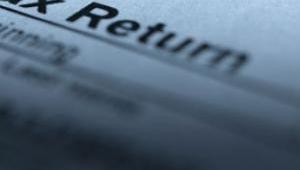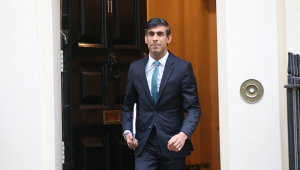The government will roll out a scheme on 8 July in which it will share data with councils in England and Wales on residents who fail to pay their council tax.
A total of 29 councils involved in the scheme will be able to request information on residents’ employment and will be allowed to deduct unpaid council tax bills from an individual’s earnings.
Councils, the Cabinet Office and HMRC have said that this will crackdown on unpaid council tax, which cost English authorities £3bn (at March 2018) since its introduction.
It would also cut out the need for councils to employ bailiffs, who have been accused of aggressive debt collection methods, they argue.
But debt charity StepChange has warned that this move could represent a “double-edged sword”.
A spokesperson said: “On the one hand, yes council tax is a priority debt and yes recouping unpaid tax arrears in this way makes it less likely that people end up with even higher costs and bailiff experiences.
“But on the other hand, if the reasons why people aren’t paying is because of far wider financial problems, then it may actually worsen or exacerbate that situation if they don’t also get high quality advice about their finances and debts.”
They added: “Depending on the detail, we’d potentially be concerned about local authorities taking a route to result in their own financial performance being improved, but the individual’s financial situation not necessarily being addressed in an appropriate way that puts affordability and the individual’s interests at the heart of collections strategy.”
Gillian Guy, chief executive of Citizens Advice, said: “Our research shows harsh collection methods added half a billion pounds in fees to people’s council tax debts in 2016/17 alone.
“It’s encouraging to see local authorities trying to reduce bailiff use but any collections must be affordable and should not leave people on low incomes with too little to live on.”
Coventry City Council, one of the authorities piloting the scheme, hoped it would help reduce an estimated £5m of unpaid tax in the area.
John Mutton, cabinet member for finance, said: “Last year the amount of council tax collected by the revenues team was more than £9.3m up on the previous year.
“It is important to work hard to maximise revenue collections especially at a time when the national government is reducing the amount of funding it provides to local authorities.”
Mutton also stressed the importance of working with debt advice providers to help those in debt.
The powers to deduct unpaid tax from residents’ earnings is not new but the access to employment information is.
The scheme utilises the Digital Economy Act 2017, which permits data sharing between public authorities for the purpose of reducing debt. It will run for one year after which a decision will be made whether to roll it out nationwide.
The National Audit Office has previously estimated that personal debt is costing the UK economy £900m each year.
In April the government pledged to engage with charities and debt advice bodies to create a “fairer” collection system.
Last year, Victor Smart wrote about aggressive public sector debt collecting practices for PF.











